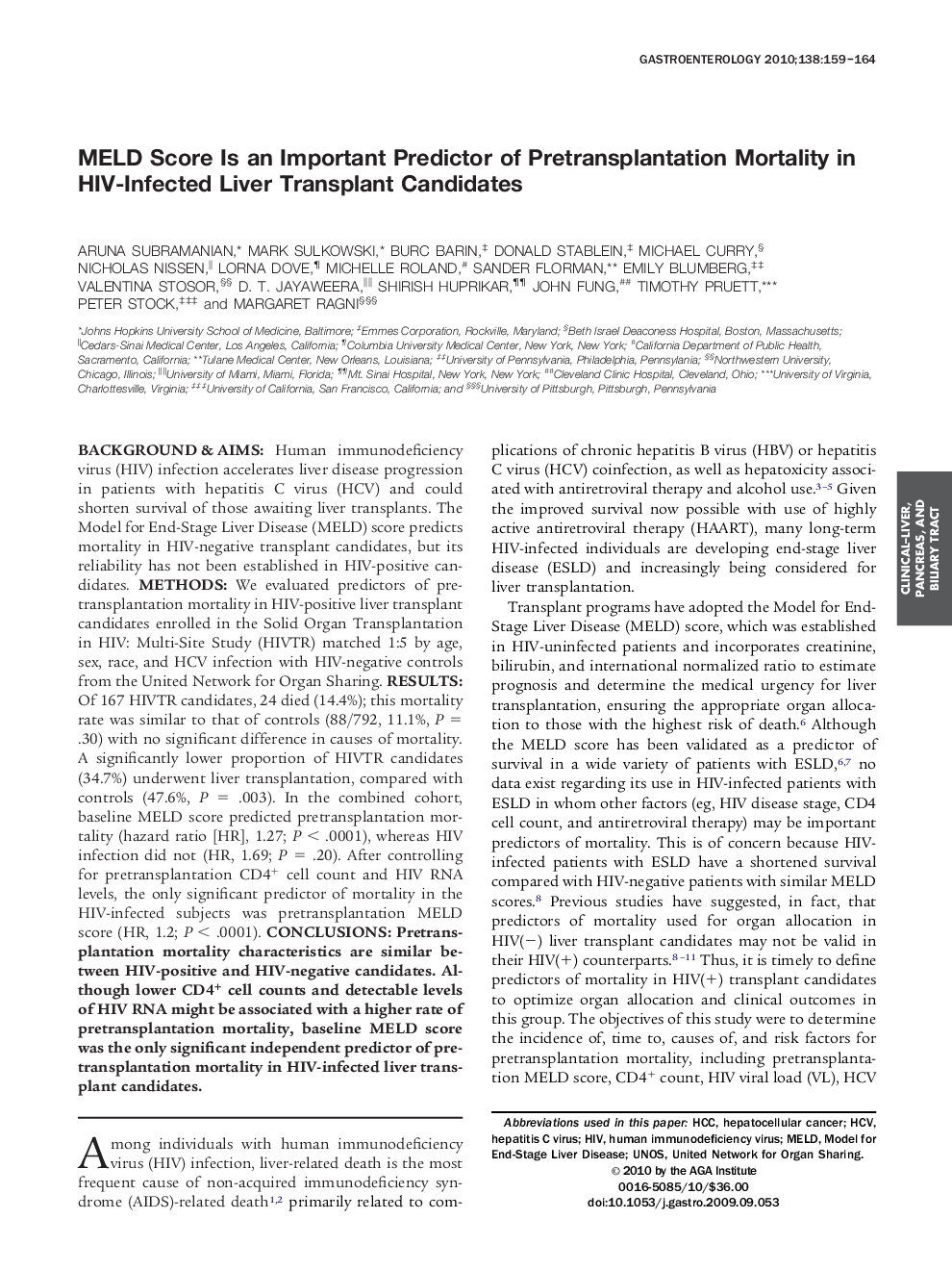| Article ID | Journal | Published Year | Pages | File Type |
|---|---|---|---|---|
| 3298364 | Gastroenterology | 2010 | 6 Pages |
Background & AimsHuman immunodeficiency virus (HIV) infection accelerates liver disease progression in patients with hepatitis C virus (HCV) and could shorten survival of those awaiting liver transplants. The Model for End-Stage Liver Disease (MELD) score predicts mortality in HIV-negative transplant candidates, but its reliability has not been established in HIV-positive candidates.MethodsWe evaluated predictors of pretransplantation mortality in HIV-positive liver transplant candidates enrolled in the Solid Organ Transplantation in HIV: Multi-Site Study (HIVTR) matched 1:5 by age, sex, race, and HCV infection with HIV-negative controls from the United Network for Organ Sharing.ResultsOf 167 HIVTR candidates, 24 died (14.4%); this mortality rate was similar to that of controls (88/792, 11.1%, P = .30) with no significant difference in causes of mortality. A significantly lower proportion of HIVTR candidates (34.7%) underwent liver transplantation, compared with controls (47.6%, P = .003). In the combined cohort, baseline MELD score predicted pretransplantation mortality (hazard ratio [HR], 1.27; P < .0001), whereas HIV infection did not (HR, 1.69; P = .20). After controlling for pretransplantation CD4+ cell count and HIV RNA levels, the only significant predictor of mortality in the HIV-infected subjects was pretransplantation MELD score (HR, 1.2; P < .0001).ConclusionsPretransplantation mortality characteristics are similar between HIV-positive and HIV-negative candidates. Although lower CD4+ cell counts and detectable levels of HIV RNA might be associated with a higher rate of pretransplantation mortality, baseline MELD score was the only significant independent predictor of pretransplantation mortality in HIV-infected liver transplant candidates.
